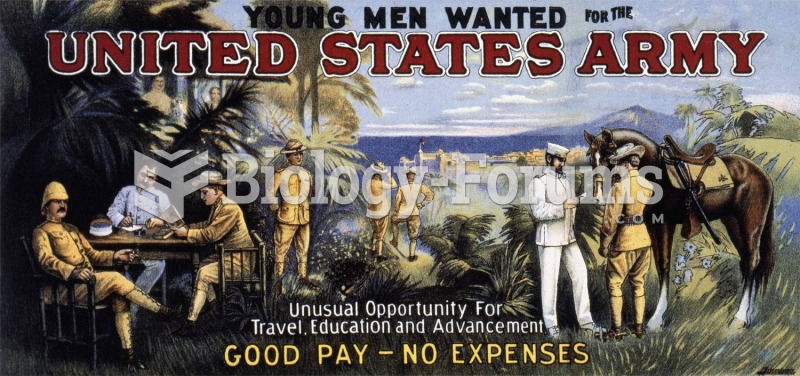|
|
|
Most strokes are caused when blood clots move to a blood vessel in the brain and block blood flow to that area. Thrombolytic therapy can be used to dissolve the clot quickly. If given within 3 hours of the first stroke symptoms, this therapy can help limit stroke damage and disability.
Ether was used widely for surgeries but became less popular because of its flammability and its tendency to cause vomiting. In England, it was quickly replaced by chloroform, but this agent caused many deaths and lost popularity.
The first oncogene was discovered in 1970 and was termed SRC (pronounced "SARK").
Blood is approximately twice as thick as water because of the cells and other components found in it.
In inpatient settings, adverse drug events account for an estimated one in three of all hospital adverse events. They affect approximately 2 million hospital stays every year, and prolong hospital stays by between one and five days.
 Fighting the insurgents in the Philippines proved unpopular and enlistments declined as the war drag
Fighting the insurgents in the Philippines proved unpopular and enlistments declined as the war drag
 Young Bill Clinton (left) shakes hands with President John F. Kennedy. “The torch has been passed ...
Young Bill Clinton (left) shakes hands with President John F. Kennedy. “The torch has been passed ...





